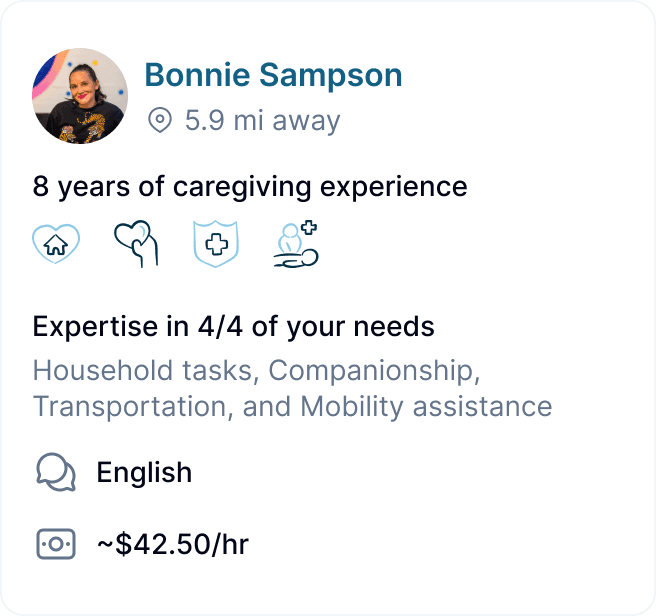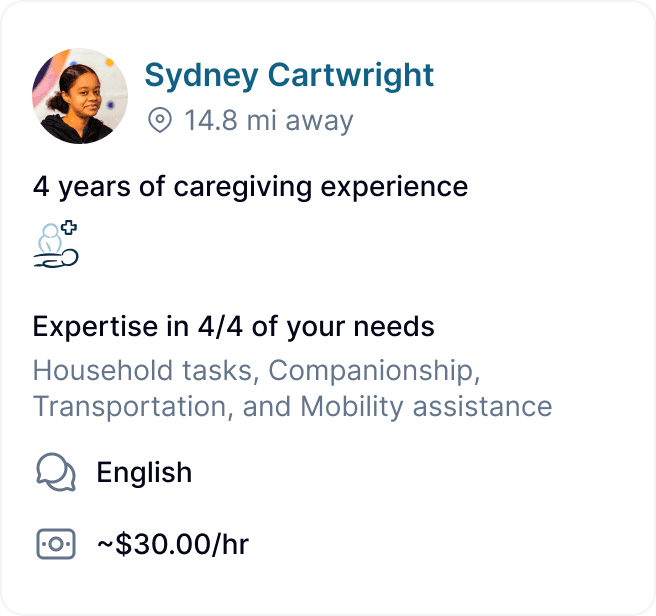This Is Ageist: When Seniors Feel Dismissed by the System



Ageism–stereotyping, prejudice, and discrimination based on age–is a silent but pervasive force affecting millions of older adults worldwide. Despite the growing population of seniors, many still feel invisible, dismissed, or outright neglected by the very systems meant to support them. The consequences are not just emotional; they are deeply physical, impacting the health and wellbeing of seniors and their families.
The Powerful Impacts of Ageism on Health and Wellbeing
Older adults routinely encounter ageism in healthcare and society. The World Health Organization (WHO) reports that half of people are ageist toward older adults, and ageism is especially common in healthcare settings.
Seniors often experience being spoken to condescendingly, ignored during medical appointments, or having their symptoms dismissed as "just old age," leading to missed or inaccurate diagnoses and inadequate care.
The Detrimental Health Impacts of Isolation and Neglect
The effects of ageism go far beyond hurt feelings. Research shows that negative attitudes and systemic neglect directly harm physical and mental health:
Seniors exposed to negative age stereotypes experience heightened cardiovascular stress responses, such as increased blood pressure and heart rate, which can lead to hypertension and other long-term health issues.
Older adults who feel dismissed or burdensome are at higher risk of depression, social isolation, and even premature death.
Those with negative beliefs about aging recover less well from disability and live, on average, 7.5 years less than those with positive attitudes.
Social isolation, often a byproduct of ageist systems, further compounds these risks. Isolated seniors are more likely to experience cognitive decline, chronic illness, and reduced quality of life. The impact extends to families, who may struggle emotionally and financially as their loved ones’ needs go unmet or are misunderstood by the system.
The Ripple Effects on Families and Support Networks
Ageism doesn’t stop with the older adult—it reverberates through the people who love and care for them. When clinicians or institutions minimize an elder’s needs, family members must step in as advocates and caregivers, often without adequate guidance. Studies show that caregivers who hold—or are forced to confront—ageist assumptions report significantly higher stress and role‑overload; hostile ageism in particular is tied to greater caregiver burden and poorer relationship quality with the older relative.
The good news? You don’t have to do it alone.
A trusted, private caregiver who comes right to your loved one’s front door can take on the routine tasks—meal prep, medication reminders, gentle exercise—so you can spend your energy on quality moments instead of logistics. For the “sandwich generation” balancing kids, careers, and aging parents, this shared-care model is a game‑changer. With an extra set of expert hands, family members gain back precious time, reduce stress, and keep burnout at bay. Just as important, professional caregivers bring fresh eyes and specialized training that help counter ageist assumptions: they see capabilities, encourage independence, and keep older adults socially engaged—bolstering everyone’s confidence in the process.
Whether you need a few hours of respite each week or full‑time support, inviting a private, in‑home caregiver into the circle transforms care from a solo responsibility into a true team effort. The result is a stronger, more connected family—and an older loved one who feels respected, included, and rightfully at home.
Re‑imagining Care: Why Private, In‑Home Support Restores Dignity—And How Clara Makes It Easy
Keeping Mom or Dad at home isn’t just a sentimental choice; it actively counters the subtle ageism that creeps into busy clinics and institutional settings. A trusted caregiver who comes to their living room sees the whole person, not a chart number. That one‑on‑one attention lets older adults set the daily rhythm, keep beloved routines, and stay connected to neighbors and memories—proven ingredients for confidence, independence, and better health.
Of course, finding and managing that ideal caregiver can feel overwhelming. That’s where Clara steps in as a facilitator of private, in‑home care. Clara’s simple online questionnaire (it takes about five minutes) or a quick call puts you in touch with a dedicated Care Advisor who listens first and then matches your family with thoroughly vetted caregivers using Clara’s smart matching tools.
If ageism tells older adults to “step aside,” in‑home care delivers the opposite message: You are valued right where you are. Ready to explore that kind of care? Schedule a call with Clara at 415‑985‑0926—and see how easy it can be to bring respect, reliability, and peace of mind back into your family’s everyday life.
Ageism–stereotyping, prejudice, and discrimination based on age–is a silent but pervasive force affecting millions of older adults worldwide. Despite the growing population of seniors, many still feel invisible, dismissed, or outright neglected by the very systems meant to support them. The consequences are not just emotional; they are deeply physical, impacting the health and wellbeing of seniors and their families.
The Powerful Impacts of Ageism on Health and Wellbeing
Older adults routinely encounter ageism in healthcare and society. The World Health Organization (WHO) reports that half of people are ageist toward older adults, and ageism is especially common in healthcare settings.
Seniors often experience being spoken to condescendingly, ignored during medical appointments, or having their symptoms dismissed as "just old age," leading to missed or inaccurate diagnoses and inadequate care.
The Detrimental Health Impacts of Isolation and Neglect
The effects of ageism go far beyond hurt feelings. Research shows that negative attitudes and systemic neglect directly harm physical and mental health:
Seniors exposed to negative age stereotypes experience heightened cardiovascular stress responses, such as increased blood pressure and heart rate, which can lead to hypertension and other long-term health issues.
Older adults who feel dismissed or burdensome are at higher risk of depression, social isolation, and even premature death.
Those with negative beliefs about aging recover less well from disability and live, on average, 7.5 years less than those with positive attitudes.
Social isolation, often a byproduct of ageist systems, further compounds these risks. Isolated seniors are more likely to experience cognitive decline, chronic illness, and reduced quality of life. The impact extends to families, who may struggle emotionally and financially as their loved ones’ needs go unmet or are misunderstood by the system.
The Ripple Effects on Families and Support Networks
Ageism doesn’t stop with the older adult—it reverberates through the people who love and care for them. When clinicians or institutions minimize an elder’s needs, family members must step in as advocates and caregivers, often without adequate guidance. Studies show that caregivers who hold—or are forced to confront—ageist assumptions report significantly higher stress and role‑overload; hostile ageism in particular is tied to greater caregiver burden and poorer relationship quality with the older relative.
The good news? You don’t have to do it alone.
A trusted, private caregiver who comes right to your loved one’s front door can take on the routine tasks—meal prep, medication reminders, gentle exercise—so you can spend your energy on quality moments instead of logistics. For the “sandwich generation” balancing kids, careers, and aging parents, this shared-care model is a game‑changer. With an extra set of expert hands, family members gain back precious time, reduce stress, and keep burnout at bay. Just as important, professional caregivers bring fresh eyes and specialized training that help counter ageist assumptions: they see capabilities, encourage independence, and keep older adults socially engaged—bolstering everyone’s confidence in the process.
Whether you need a few hours of respite each week or full‑time support, inviting a private, in‑home caregiver into the circle transforms care from a solo responsibility into a true team effort. The result is a stronger, more connected family—and an older loved one who feels respected, included, and rightfully at home.
Re‑imagining Care: Why Private, In‑Home Support Restores Dignity—And How Clara Makes It Easy
Keeping Mom or Dad at home isn’t just a sentimental choice; it actively counters the subtle ageism that creeps into busy clinics and institutional settings. A trusted caregiver who comes to their living room sees the whole person, not a chart number. That one‑on‑one attention lets older adults set the daily rhythm, keep beloved routines, and stay connected to neighbors and memories—proven ingredients for confidence, independence, and better health.
Of course, finding and managing that ideal caregiver can feel overwhelming. That’s where Clara steps in as a facilitator of private, in‑home care. Clara’s simple online questionnaire (it takes about five minutes) or a quick call puts you in touch with a dedicated Care Advisor who listens first and then matches your family with thoroughly vetted caregivers using Clara’s smart matching tools.
If ageism tells older adults to “step aside,” in‑home care delivers the opposite message: You are valued right where you are. Ready to explore that kind of care? Schedule a call with Clara at 415‑985‑0926—and see how easy it can be to bring respect, reliability, and peace of mind back into your family’s everyday life.
Ageism–stereotyping, prejudice, and discrimination based on age–is a silent but pervasive force affecting millions of older adults worldwide. Despite the growing population of seniors, many still feel invisible, dismissed, or outright neglected by the very systems meant to support them. The consequences are not just emotional; they are deeply physical, impacting the health and wellbeing of seniors and their families.
The Powerful Impacts of Ageism on Health and Wellbeing
Older adults routinely encounter ageism in healthcare and society. The World Health Organization (WHO) reports that half of people are ageist toward older adults, and ageism is especially common in healthcare settings.
Seniors often experience being spoken to condescendingly, ignored during medical appointments, or having their symptoms dismissed as "just old age," leading to missed or inaccurate diagnoses and inadequate care.
The Detrimental Health Impacts of Isolation and Neglect
The effects of ageism go far beyond hurt feelings. Research shows that negative attitudes and systemic neglect directly harm physical and mental health:
Seniors exposed to negative age stereotypes experience heightened cardiovascular stress responses, such as increased blood pressure and heart rate, which can lead to hypertension and other long-term health issues.
Older adults who feel dismissed or burdensome are at higher risk of depression, social isolation, and even premature death.
Those with negative beliefs about aging recover less well from disability and live, on average, 7.5 years less than those with positive attitudes.
Social isolation, often a byproduct of ageist systems, further compounds these risks. Isolated seniors are more likely to experience cognitive decline, chronic illness, and reduced quality of life. The impact extends to families, who may struggle emotionally and financially as their loved ones’ needs go unmet or are misunderstood by the system.
The Ripple Effects on Families and Support Networks
Ageism doesn’t stop with the older adult—it reverberates through the people who love and care for them. When clinicians or institutions minimize an elder’s needs, family members must step in as advocates and caregivers, often without adequate guidance. Studies show that caregivers who hold—or are forced to confront—ageist assumptions report significantly higher stress and role‑overload; hostile ageism in particular is tied to greater caregiver burden and poorer relationship quality with the older relative.
The good news? You don’t have to do it alone.
A trusted, private caregiver who comes right to your loved one’s front door can take on the routine tasks—meal prep, medication reminders, gentle exercise—so you can spend your energy on quality moments instead of logistics. For the “sandwich generation” balancing kids, careers, and aging parents, this shared-care model is a game‑changer. With an extra set of expert hands, family members gain back precious time, reduce stress, and keep burnout at bay. Just as important, professional caregivers bring fresh eyes and specialized training that help counter ageist assumptions: they see capabilities, encourage independence, and keep older adults socially engaged—bolstering everyone’s confidence in the process.
Whether you need a few hours of respite each week or full‑time support, inviting a private, in‑home caregiver into the circle transforms care from a solo responsibility into a true team effort. The result is a stronger, more connected family—and an older loved one who feels respected, included, and rightfully at home.
Re‑imagining Care: Why Private, In‑Home Support Restores Dignity—And How Clara Makes It Easy
Keeping Mom or Dad at home isn’t just a sentimental choice; it actively counters the subtle ageism that creeps into busy clinics and institutional settings. A trusted caregiver who comes to their living room sees the whole person, not a chart number. That one‑on‑one attention lets older adults set the daily rhythm, keep beloved routines, and stay connected to neighbors and memories—proven ingredients for confidence, independence, and better health.
Of course, finding and managing that ideal caregiver can feel overwhelming. That’s where Clara steps in as a facilitator of private, in‑home care. Clara’s simple online questionnaire (it takes about five minutes) or a quick call puts you in touch with a dedicated Care Advisor who listens first and then matches your family with thoroughly vetted caregivers using Clara’s smart matching tools.
If ageism tells older adults to “step aside,” in‑home care delivers the opposite message: You are valued right where you are. Ready to explore that kind of care? Schedule a call with Clara at 415‑985‑0926—and see how easy it can be to bring respect, reliability, and peace of mind back into your family’s everyday life.
More about senior health
More about senior health


Strong, Steady, and Supported: Helping Seniors Stay Active and Empowered



Clara Editorial Team


How Aging in Place Supports Mental Health for Seniors



Lowrie Hilladakis


How Therapy Animals Can Help with Loneliness in Seniors



Clara Editorial Team


What Are The Activities Of Daily Living (ADLs)?



Clara Editorial Team


Peace of Mind: How Meditation Supports Seniors and Their Caregivers



Lowrie Hilladakis


Osteoporosis in Older Adults: What Every Caregiver Should Know



Clara Editorial Team


Why Aging in Place Is the New Reality for Most Baby Boomers



Clara Editorial Team


Warning Signs Of Vision Loss In Seniors—And What To Do Next



Clara Editorial Team


“They Were Talking to Each Other, But Not to Me”: Understanding the Patient Experience During Hospital-to-SNF Transitions



Clara Editorial Team


Talking About Therapy: How to Normalize Mental Health Support with Aging Parents



Lowrie Hilladakis
GEt started for free
Better care starts with Clara.
Find, hire, and pay top-notch caregivers without the headache for a price that fits your budget.



GEt started for free
Better care starts with Clara.
Find, hire, and pay top-notch caregivers without the headache for a price that fits your budget.



GEt started for free
Better care starts with Clara.
Find, hire, and pay top-notch caregivers without the headache for a price that fits your budget.

